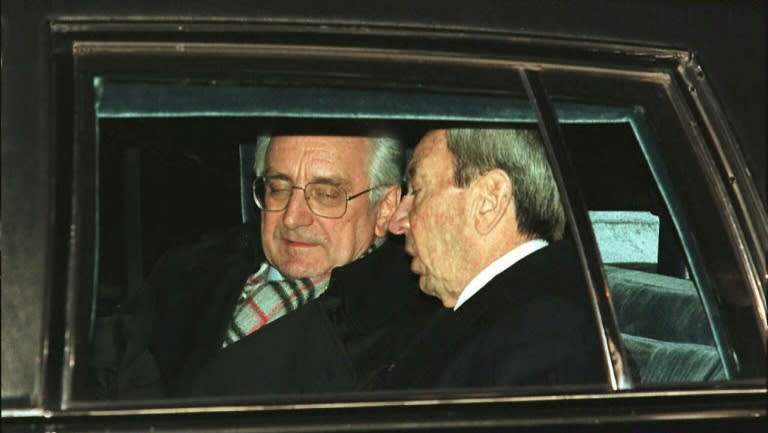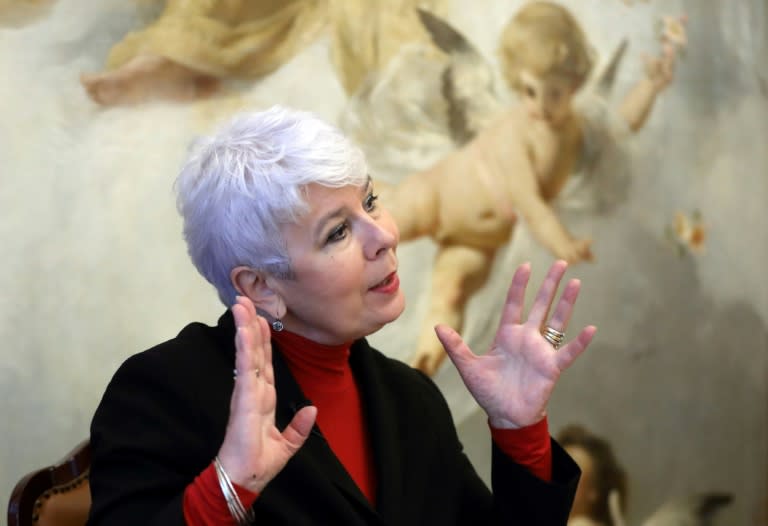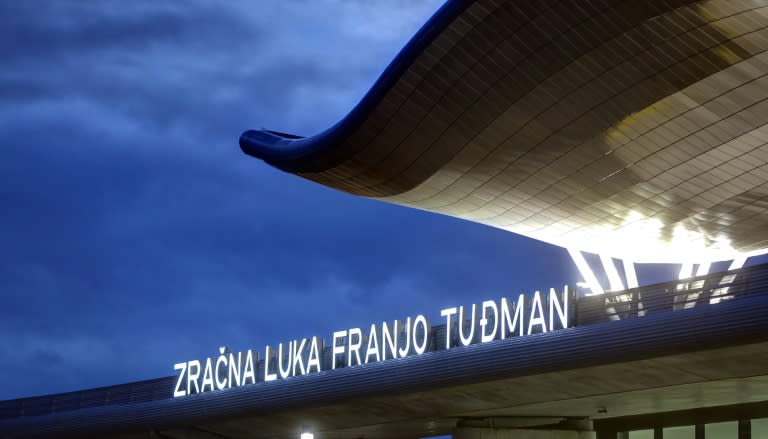UN court exposes uneasy legacy of Croatia's 'father' Tudjman
When tourists fly into Croatia's capital, they land at the gleaming new Franjo Tudjman airport, named after the "father of the nation" -- a figure now implicated by a damning UN war crimes verdict. Last month's final ruling at the International Criminal Tribunal for the former Yugoslavia (ICTY) was overshadowed by the dramatic death of Bosnian Croat Slobodan Praljak, who drank cyanide in court after judges upheld his sentence for 1990s war crimes. But of arguably greater significance to Croatia was the judges' censure of Tudjman, the country's first president, who died in 1999 but remains a hero to many Croats for winning independence, despite the flaws of his autocratic rule. The appeal judgement handed to six Bosnian Croats at the court in The Hague, said Tudjman had shared their "ultimate purpose" of ethnically cleansing Bosnian Muslims in an attempt to unite the region's Croats. Around 100,000 people died in Bosnia's 1992-1995 conflict between Croats, Muslims and Serbs as Yugoslavia collapsed into several wars. Croatian people were "rightly outraged" by the court's ruling, fumed a comment piece the next day in the Novi list newspaper, saying the stain on the country's 1990s leadership "brings into doubt all we think about ourselves". Despite the verdict, the 18th anniversary of Tudjman's death was marked on December 10 with the usual nationwide commemorations. Top officials laid wreaths in the colour of the national flag by his imposing black marble grave in Zagreb. Tudjman "was a statesman... he knew exactly his goal and he achieved it, and that was to create Croatia," said pensioner Katarina Hrkac, 66, at a memorial ceremony for Praljak the following day. The Vecernji List daily, Croatia's most popular newspaper, on Saturday published a magazine dedicated to the "father of the Croatian state". - Tudjman as Croatia - Tudjman, a communist general turned nationalist dissident, led Croatia through its declaration of independence from Yugoslavia in 1991 and its subsequent four-year conflict with rebel Serbs backed by Belgrade. Jadranka Kosor, a former prime minister from Tudjman's conservative HDZ party, told AFP that the late leader's "strength and skill" lay in gathering support to oppose "one of the biggest military forces in Europe, the Yugoslav People's Army". The view of Croatia's own war as a liberation struggle against Serb aggressors is widely shared at home, but opinions are less clear-cut over Tudjman's role -- underlined by the tribunal -- in the concurrent Bosnian conflict. Croatian Prime Minister Andrej Plenkovic, also from the HDZ, slammed November's verdict, insisting that Tudjman's policy towards Bosnia was "always directed towards maintaining its territorial integrity". But "there is no doubt that the military and political leadership of Croats in Bosnia... was under the direct influence and control of officials in Zagreb," said historian Hrvoje Klasic at the University of Zagreb. He warned against "some kind of personality cult or taboo topics" regarding Tudjman. "Any criticism of Tudjman and Tudjman's politics is, in a way, considered as criticism of Croatia itself, which is catastrophic." Former ICTY prosecutor Carla del Ponte said in 2001 that the court was ready to issue an indictment against Tudjman when he died of cancer at the age of 77. - Reviving legacy - Despite his successful independence movement, Tudjman's iron-fisted rule was marked by corruption and fraudulent privatisation processes that further damaged an economy already devastated by war. His disregard for democratic reforms left him internationally isolated -- foreign leaders were noticeable in their absence at Tudjman's state funeral, which was attended by tens of thousands of Croats. And although the Croatian leaders who followed -- even in his own party -- initially distanced themselves from Tudjman's tainted legacy, a shift to the right since 2012 has seen both his name and repressive tendencies revived. Croatia's media freedom has dropped in international rankings in recent years, while rights activists warn of a growing climate of intolerance. Politicians "re-embraced the negative legacy of Tudjman and that is very harmful," said Vesna Terselic at Documenta, a rights group monitoring war crimes issues. She said the prime minister was "missing a chance" with the UN verdict to again distance the country from this legacy -- a chance she believes is still there. Marcus Tanner, a Balkans specialist and author of "Croatia: A Nation Forged in War", doubted however that the ICTY ruling would have much significance, given that Croatia is already a member of the European Union and NATO. "So it feels less beholden and vulnerable as a result of such rulings than it might have done say, 10 years ago," he said.





